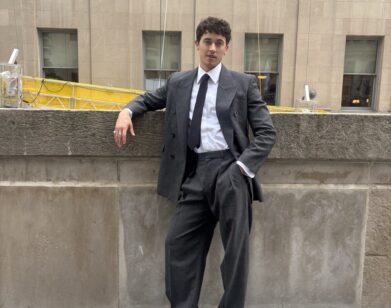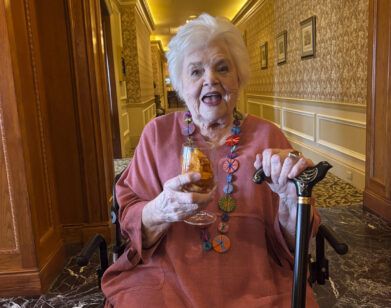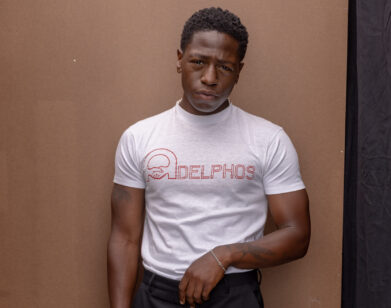Trailer Face-Off! Bel Ami vs. Farewell My Queen

Welcome to Thursday Trailer Face-Off, a feature in which we cast a critical eye on two similar upcoming film releases, pitting them against each other across a variety of categories to determine which is most deserving of your two hours. This week: Bel Ami vs. Farewell My Queen, two heavily corseted, sweepingly scored period dramas rife with the social intrigue, sexual conquests, and political power plays of the French upper crust.
Premise
Based on the novel by Guy de Maupassant, Bel Ami tracks the journey of Georges Duroy (Robert Pattison), an impoverished soldier who deftly navigates the social hierarchy of 1890s Paris, quickly ascending from the squalor and can-can halls of Montmartre to the balls and beds of the city’s most prominent socialites (Kristin Scott Thomas, Christina Ricci, and Uma Thurman among them). As with any meteoric rise, there is a predictable fall from grace, and Duroy, who cunningly wheedles his way into haute société, finds himself at the mercy of his benefactors.
Farewell My Queen is set in the court of Marie Antoinette (Diane Kruger), just before the Revolution. Told through the perspective of Sidonie Laborde (Léa Seydoux), one of her ladies-in-waiting, the film captures not only the escalating tension of the imminent rebellion, but the hierarchies within the court itself. As Sidonie gains favor with the Queen, the two develop an intimate relationship, with Sidonie as confidante. She learns of the Queen’s romantic interest in Gabrielle de Polignac (Virginie Ledoyen), and as the threat on the Queen’s life increases, so does Sidonie’s loyalty to her, to the point that Sidonie will sacrifice anything for her queen. Both films examine the politics of the French class system, but Farewell My Queen‘s historical roots (however accurate) prove especially compelling.
Advantage: Farewell My Queen
Director
Bel Ami is directing team Declan Donnellan and Nick Ormerod’s first feature. Pitted against French luminary Benoît Jacquot, director of A Single Girl and Seventh Heaven, (and frequent collaborator with Isabelle Huppert), there really is no contest, especially since it’s evident from the trailer that Jacquot has crafted a sumptuously gorgeous mise-en-scène here.
Advantage: Farewell My Queen
Historical Framework
Farewell My Queen situates itself at the end of the glory of Versailles and at the impending turmoil that would soon arise in the new republic, while Bel Ami takes us to the Belle Époque. Marked by prosperity, artistic innovation, and the emergence of the nouveau riche, we get a glimpse of France in a rare moment of peacetime, with opportunity and fortune in great supply. Farewell My Queen serves as an alternate (albeit sensationalistic) portrait of a historical figure that has been represented in various incarnations over the years. The particularly volatile era of the French Revolution provides a grounding, overarching conflict to the court’s petty moral dramas. Paired with this new look at Marie Antoinette, Farewell My Queen edges out Bel Ami in terms of historical dramatic fodder.
Advantage: Farewell My Queen
Protagonist
Post-Twilight, Robert Pattison is clearly working to set himself apart from associations with the supernatural tween melodrama, but even with David Cronenberg’s adaptation of Cosmopolis on the horizon, Pattison always tends to read vampiric (it’s the cheekbones). It works for him as the smarmy Duroy, but paired with his apathetic acting (“I’ve been such a fool” and “It’s not enough to be loved” have never been spoken with such dullness), it seems as if Pattison is still in a transition period. However, Léa Seydoux, who is no stranger to the period drama (she appeared in 2007’s The Last Mistress), is open, vulnerable, and convincing as the devoted Sidonie. Seydoux has transferred over to Hollywood with turns in Mission: Impossible 3, Midnight in Paris, and Inglorious Basterds, but she is her most arresting in her French-language roles. We remember her mostly fondly in 2008’s The Beautiful Person, opposite Louis Garrel.
Advantage: Farewell My Queen
Wardrobe
Part of the package of the period drama is the costuming. In Bel Ami, we get plenty of starched, uncomfortable-looking collars and rakishly worn top hats on the men’s side, with carefully curled updos, an excess of décolletage, and silken bustled gowns for the women. Farewell My Queen captures the height of excess in rococo, highlighting the decadent trappings of Marie Antoinette, most notably, a golden brocade dress with full panniers, elaborate wig, and frothy lace accents. Mlle de Polignac, shown in a chartreuse silk ensemble with gilded embroidery and extravagant feathered headpiece, exemplifies the disparity between the upstairs and downstairs of the court (those threadbare chemise nightgowns, Sidonie’s drably patterned cotton dresses). From the looks of it, Farewell My Queen is a veritable sartorial feast.
Advantage: Farewell My Queen
Scandal
Duroy’s philandering and social climbing seems par for the course in Bel Ami. He uses infidelity to get what he wants—money, control, and notoriety, though it eventually proves to be self-destructive, with his reputation in a contested state. The driving part of Farewell My Queen is Marie Antoinette’s same-sex indiscretions, which anchors the narrative and intensifies her and Sidonie’s relationship, providing for plenty of tension, misplaced affections, and the churning of the court’s rumor mill.
Advantage: Tie
Verdict
Farewell My Queen wins by a landslide. The trailer promises a visually stunning representation of the waning days of Versailles, and while Bel Ami has its own merits, they’re just not enough.
Winner: Farewell My Queen
For more Trailer Face-offs, click here.






